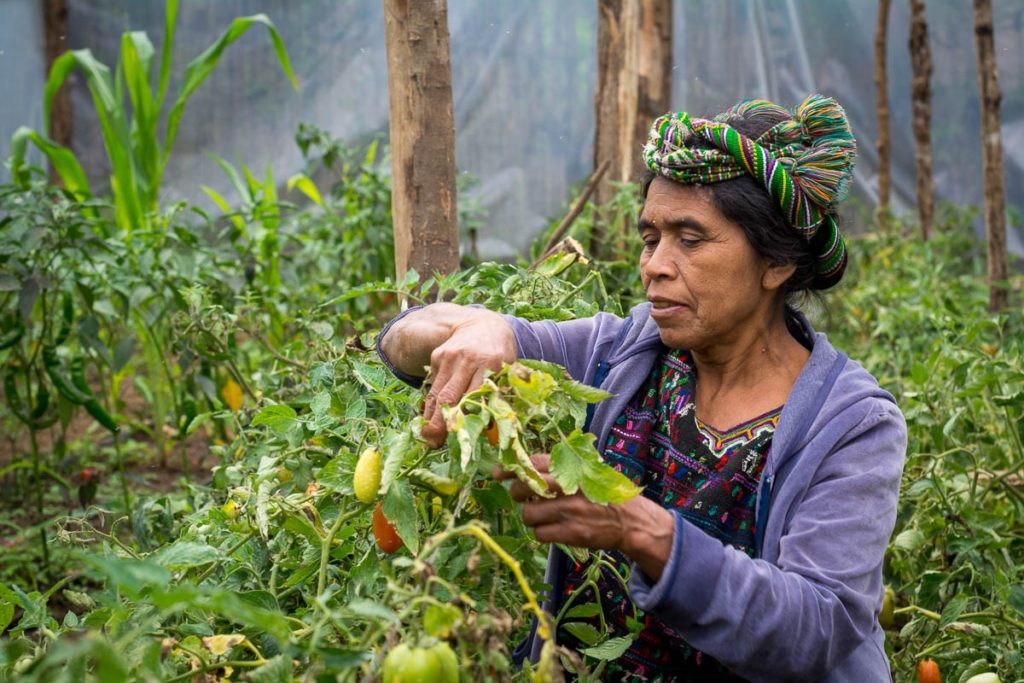
At Long Last, A Chance to Live and Prosper
Petrona, a community leader, is finally experiencing peace and the joys of a dependable livelihood after a lifetime of experiencing the horrors and hardship foisted on the indigenous people of Guatemala during the armed conflict of 1960-1996.
Petrona grew up on “a small patch of land where we grew corn and had a few cows and some chickens.” When she was a girl, Petrona’s parents were killed when the army falsely accused the town’s elders of supporting the rebels. They began shooting, burned homes and crops, and even butchered livestock.
Petrona hid during the massacre, and managed to flee to a nearby city where she found work as a maid. But her employers humiliated her, calling her an animal, and treated her cruelly until peace accords were signed in 1996. When the government offered land to the displaced people, Petrona immediately moved back to Nebaj. However, even after 25 years the promises of “clean water, jobs, land, health, and opportunities” were never fulfilled. So how is it that Petrona’s life is so greatly improved?
“What you see here in our community today is due to our hard work, our determination, our efforts and the help of [local partner] CIEDEG. We have access to clean water. We advocate for infrastructure and services now from our municipality. I have a greenhouse where I work with five other women. We are slowly re-weaving the social fabric that the army tore apart. We plant tomatoes, bell peppers, jalapeños, and cucumbers in the greenhouse, and swiss chard, mustard greens, cauliflower, and broccoli in the ground. Last year we picked about 2,000 pounds of tomatoes in just one harvest. I like the work we do because we have enough to eat and enough to sell. I can buy my own seeds for next year, and I’m not dependent on anyone now.”
Guatemala Nebaj Quetzaltenango Program
Led by Church World Service and Local Partner CIEDEG
